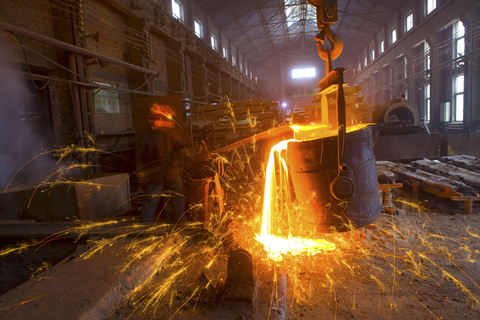October 26, 2022
SAN FRANCISCO, CA - October 26, 2022 - PRESSADVANTAGE -
Open Innovation Ecosystem Earlybirds.io is excited to announce that they are prepared to help innovators and early adopter organizations tackle the challenge of decarbonizing the steel industry through networking and collaboration. McKinsey reports that steel is one of the most important materials in modern life, as it is used to build everything from buildings, bridges, and fridges to planes, trains, and automobiles. As population grows and more and more of the world catch up to modern era development, some predict that global steel demand could double over the next 30 years.
Unfortunately for a planet that’s already facing the severe impacts of climate change, steel production is also incredibly carbon intensive. This is because the production of steel starts with iron, which already must be heated to high temperatures to be made into the “purified” form that can be used for making things. Steel is formed by infusing carbon into that iron, which again takes a lot of heat and carbon-based fuel. This is generally done using blast furnaces, which can reach nearly three thousand degrees and melt large quantities of iron. Creating that kind of heat is an energy intensive process, and with so much demand for steel, the steel industry creates two billion tons of steel and emits more than three billion tons of Co2 annually, primarily from these blast furnaces. This makes steel a ripe industry for carbon reducing innovations. Innovators working on these problems can find their place at EarlyBirds at https://earlybirds.io/en/innovator to search, claim and add to their listing.
A number of technologies have been developed in recent years that show promise towards decarbonizing the steel industry, including carbon capture storage equipment, or purifying iron using hydrogen instead of carbon to make H20, or plain water, instead of the greenhouse gas CO2 as a waste product. Blast furnaces are being replaced with electric arc furnaces, and other innovations are being adopted, but at this time there is much uncertainty about which technologies will become more standard in the future. This is not to say there is not motivation to decarbonize within the steel industry. Key players in the steelmaking ecosystem also stand to benefit from shifting towards low-carbon steel production. However, innovators and the companies that want to make a difference in the industry by using the latest and greenest technologies can struggle to find each other and make things happen. This is where EarlyBirds comes in. By building an ecosystem for innovators and early adopters of new technology to connect, EarlyBirds is positioned to facilitate the world’s transition to carbon neutral steel. Organizations looking for innovations they can implement in their own work can go here: https://earlybirds.io/en/early_adopter and review what capabilities are available to assist with the transition.
One feature of the EarlyBirds platform is the Open Innovation Map, which can be used to accelerate the identification of disruptive innovative technologies that could solve business and technical challenges. These maps provide a framework for the challenges faced by industries today, while also organizing those challenges into categories and possible solutions, with links to innovation organizations that are working on solving those challenges. An EarlyBirds innovation map addressing the core themes and sub themes of the steel industry covering topics like electric arc furnaces, and carbon capture storage, blue and green hydrogen innovations and solutions will provide key foundations for an industry roadmap towards decarbonizing steel. The primary roadblock for green steel is the availability of low-carbon hydrogen and scaling up this technology will require massive amounts of green or blue hydrogen.
EarlyBirds is the ideal partner to work with for tackling the complexities of decarbonisation in the steel industry. This will require current information that is updated regularly on the key innovation themes needed to solve this challenge. EarlyBirds Innovation Maps can be created for a specific technical or business challenges as a dynamic ecosystem of innovators including startup, scaleup and mature companies. The maps are updated in near real time and change in accordance with emerging industry trends and issues. These are created using subject matter experts and EarlyBirds award winning platform with over 4 million innovators.
###
For more information about EarlyBirds, contact the company here:
EarlyBirds
Mr Kris Poria
support@earlybirds.io
EarlyBirds USA Inc., 548 Market St, San Francisco, CA 94104 USA